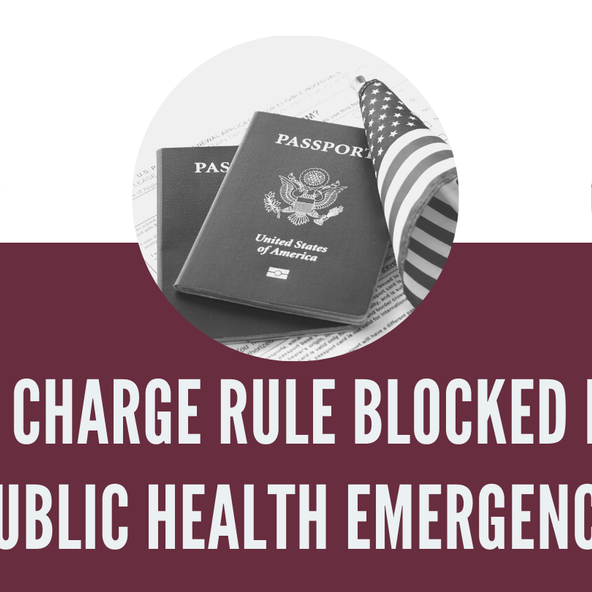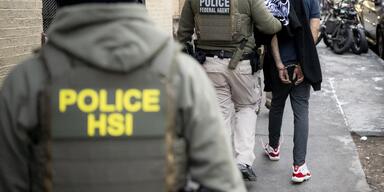
On Wednesday, July 29, 2020, a federal judge granted a preliminary injunction and temporary stay that enjoins the federal government from implementing or enforcing the public charge rule. The Trump Administration first proposed the public charge rule in September 2018. The rule would make it more difficult for immigrants to obtain legal permanent resident status if they had received or applied for federally-funded public benefits. Members of the immigrant and immigrant-allied communities – including Legal Aid – vehemently opposed the proposed rule. However, despite ongoing litigation, the public charge rule went into effect on February 24, 2020.
This week’s opinion enjoins the Administration from continuing to implement the public charge rule (nationwide) while there is a declared national health emergency in response to COVID-19. The injunction applies to both the Department of Homeland Security’s and Department of State’s public charge rule.
The plaintiffs in this case argued that the public charge rule has had a chilling effect on the immigrant community, causing many to forego seeking testing or treatment for COVID-19 due to fear of consequences related to public charge. They also argued that the public health emergency has a disproportionate impact on the immigrant community as many of the essential, front-line workers who are consistently exposed to COVID-19 are immigrants. The Administration argued that they had addressed the need for immigrants to obtain health care services during the COVID-19 pandemic by issuing an “alert” on March 13, 2020 stating that any “testing, treatment [and] preventative care . . . related to COVID-19” would be excluded from public charge analysis. The federal court ultimately agreed with the plaintiffs that this alert was both vague and insufficient to overcome the practical concerns many immigrants have about accessing public benefits that would help curb the spread of the COVID-19 pandemic.
This new ruling still leaves many questions unanswered – including the outcome of the ongoing litigation challenging the rule – and it is still unclear how this injunction will affect individuals who are in the process of applying to adjust status or how this period of time will be treated for future applicants. For now, this ruling is at least a moral victory for the immigrant community and has shown that “[t]he [Public Charge] Rule has demonstrably failed its first real world test of its application.”




